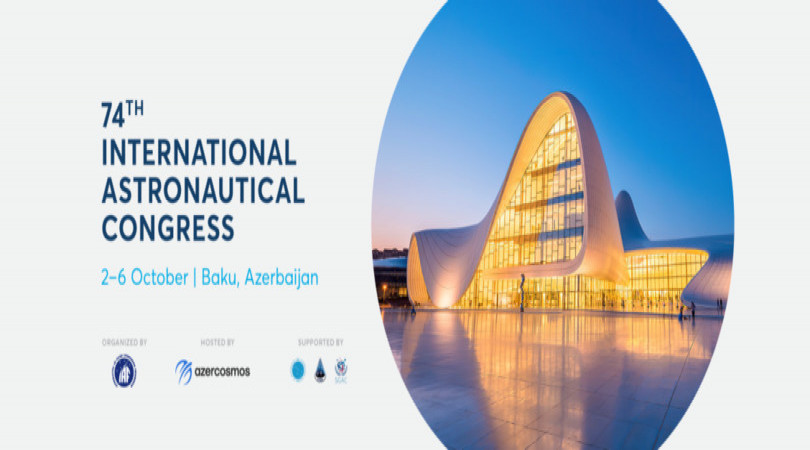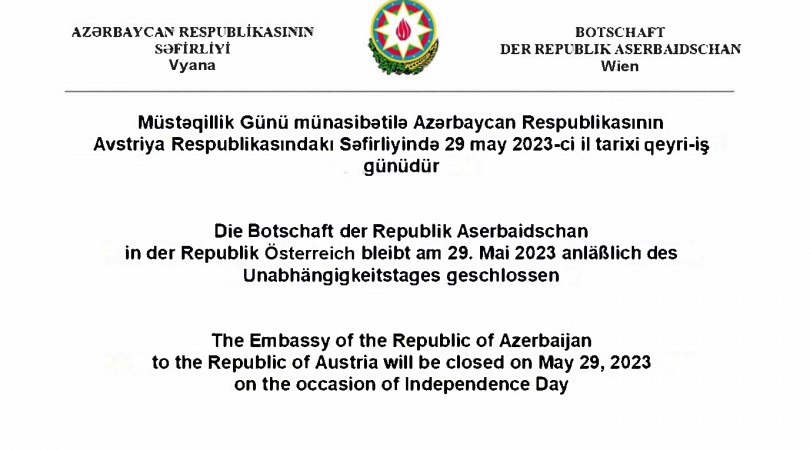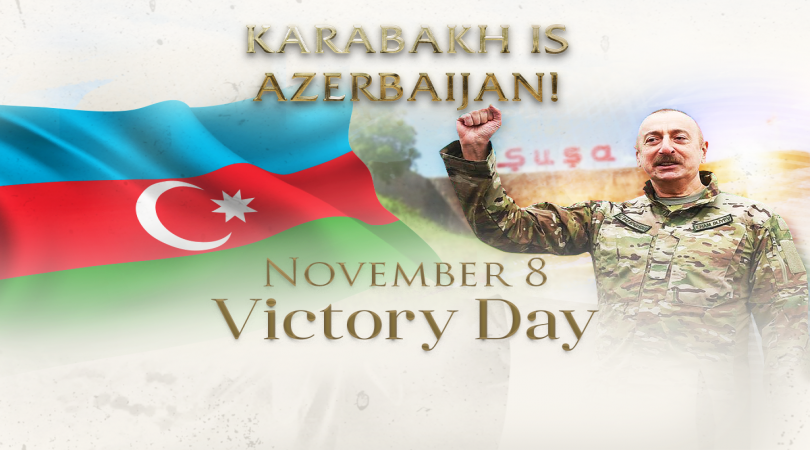Statement by the Delegation of the Republic of Azerbaijan in response to Armenia, 1266th Meeting of the Permanent Council, 07 May 2020
Statement by the Delegation of the Republic of Azerbaijan
1266th Meeting of the Permanent Council,
7 May 2020
on the 75th Anniversary of the end of World War II
and 28th anniversary of occupation of Shusha by Armenia
Right of reply to Armenia
Mr. Chairperson,
Since the Delegation of Armenia referred to the statement by the Ambassador of Azerbaijan, I would like to respond.
First, building a monument in Armenia to Nazi collaborator Garegin Nzhdeh was condemned not only by Azerbaijan, but many others. Holocaust scholar and head of the Simon Wiesenthal Centre, Dr. Efraim Zuroff, who has played a key role in bringing indicted Nazi war criminals to trial, commenting on this monument told the Jerusalem Post that “[t]he fact that they built the statue is quite outrageous”. “We must object to any glorification of individuals who fought with the Nazis or extended any assistance to the forces of the Third Reich.” I think, no further comments are necessary on this issue.
Second, the statement of the Armenian delegation speaks volumes about how far this country is from engaging in a constructive search for peace with Azerbaijan.
What the Armenian side describes as so-called “liberation of Shusha” has been qualified by the UN Security Council as the unlawful use of force and occupation of the territories of Azerbaijan. The UN Security Council in its resolutions condemned the occupation of the territories of Azerbaijan and reaffirmed respect for the sovereignty and territorial integrity of the Republic of Azerbaijan and the inviolability of its internationally recognized borders. In those resolutions, the Security Council also confirmed that the Nagorno-Karabakh region is part of Azerbaijan, and demanded immediate, complete and unconditional withdrawal of the Armenian occupying forces from all the occupied territories of Azerbaijan.
The short memory of Armenian representative extends also to the fact that it was exactly the attack and occupation of the Azerbaijani town of Shusha in the Nagorno-Karabakh region of Azerbaijan that elicited first Presidential Statement by the UN Security Council, in which the Council, recalled, inter alia, the commitment of Armenia to uphold the Purposes and Principles of the Charter of the United Nations, in particular the principles relating to the peaceful settlement of disputes and the non-use of force, thus indicating direct involvement of Armenia in the conflict.
Armenia must implement these resolutions of the UN Security Council. Azerbaijan reserves the right to restore its territorial integrity in accordance with the UN Charter.
Instead of repeating its allegations, Armenia should rather reflect upon the topic of today’s Permanent Council and to draw two important lessons from the past: the first being that the past proved at a very high price that constructing historical narratives around political goals to sustain territorial claims on its neighbours and to camouflage its annexationist aspirations is a very dangerous exercise, which can lead to nothing, but to more conflict and instability, causing more sufferings to the Armenian people.
And second, as my Ambassador said in his statement, the international legal order emerged out of the World War II puts a firm prohibition on unlawful use of force for the acquisition and occupation of territory, which shall never be recognized as legal. This fundamental principle is at the core of the UN Charter and the Helsinki Final Act and the foundation of this Organization. So, Armenia must understand that there can be no peace until this country refers to the unlawful occupation of territories of Azerbaijan as “liberation of territories”. Its policy will never produce the political outcome that it desires. Rather than sticking to its narrative, it should reconsider its unconstructive position in negotiation.
Thank you, Mt. Chairperson.




















